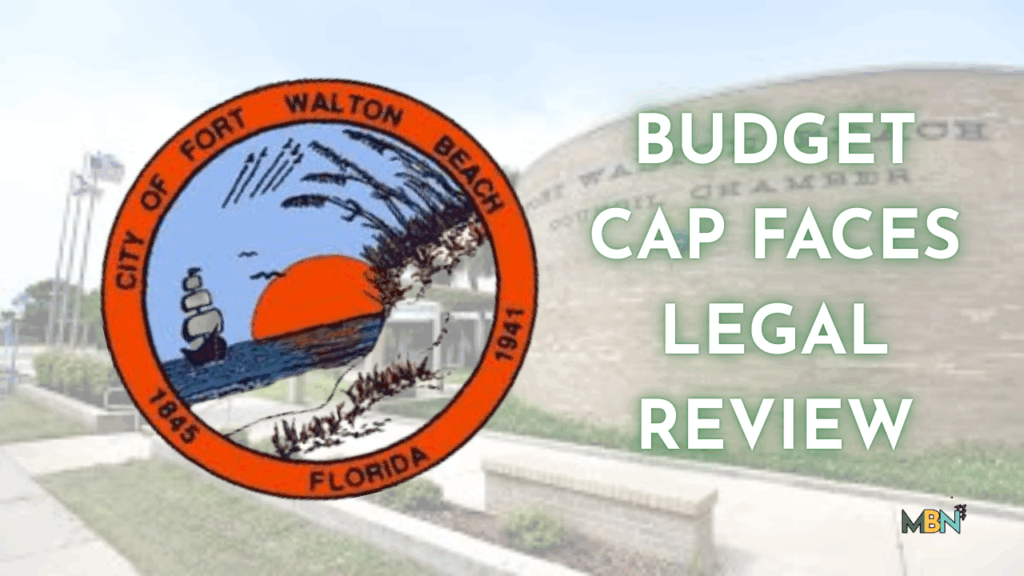
🏛️ Council voted 6–1 to ask Florida’s Attorney General to review the city’s new budget cap.
📊 Questions focus on conflicts between the charter amendment and state budgeting laws.
⚖️ Attorney General’s ruling could force changes to how Fort Walton Beach applies its spending limit.
FORT WALTON BEACH — The Fort Walton Beach City Council voted 6-1 on Aug. 26 to ask the Florida Attorney General whether a voter-approved spending cap in the city charter conflicts with state law, setting up a potential test of how far municipalities can go in limiting their own budgets.
The resolution adopted by the council seeks a legal opinion on three questions raised by the November 2024 referendum, which amended the charter to cap annual budget increases at no more than 3% above the prior year’s actual expenditures or a cost-of-living adjustment, whichever is greater.
While supporters said the cap would protect taxpayers from unchecked growth, city attorneys and council members have since raised concerns about how it interacts with Florida’s complex budgeting laws.
According to the resolution, the Attorney General will be asked to rule on:
City Attorney Jeff Burns stated that consolidating the questions into a single resolution would provide the Attorney General with clarity.
“If I’m wrong, I’d like them to tell me I’m wrong,” Burns said.
Councilmember Payne Walker questioned whether the request was even needed, stressing that no police budget reductions had been proposed.
“There is no tentative budget that is proposing any reduction to the police department,” Walker said. “I think there’s no reason to ask it, because it’s already been answered.”
Walker also pointed out that state law already provides procedures in the event of a police budget cut, noting its roots in debates over defunding law enforcement.
Councilmember David Schmidt countered that an outside ruling would provide future councils with the needed clarity.
“It might not be a 5% issue on this year’s budget,” Schmidt said. “I think it’d be good to at least get the Attorney General’s information … as we prepare for future budgets.”
Walker also asked whether the citizens’ “watch group” that raised the concerns could submit a statement with the request. Burns replied that only the city attorney’s opinion and the council’s authorization would be sent, though additional input could be added later if the Attorney General requested it.
Councilmember Debi Riley objected to the implication that Burns’ opinion might not be sufficient.
“Why are we questioning his professional ability to give us a good, clear, legal [opinion]?” she asked.
Burns responded that he was confident in his assessment but welcomed confirmation.
“The conclusions are … it does preempt the charter amendment [on the police budget],” Burns said. “If I’m wrong, I’d like them to tell me I’m wrong.”
Both Schmidt and Riley emphasized for the record that seeking the Attorney General’s guidance was not a sign of distrust in Burns’ judgment.
Mayor Nic Allegretto asked Burns whether the transmission could be delayed to allow for further review. Burns said the resolution could be delayed until the next meeting unless the Attorney General imposed a tight deadline.
Councilmember Bryce Jeter moved to adopt the resolution, with Schmidt seconding.
“Everyone has a lot of good questions, and some of the questions are about the questions,” Jeter said. “That’s why we should go to the highest power to get the answer.”
Allegretto called the vote, and the council approved the measure 6–1, with Walker dissenting.
The resolution directs Burns to finalize his written opinion and forward the package to Attorney General James Uthmeier. The office could accept the case, issue a formal opinion, or decline to review it.
If the Attorney General finds the charter cap unenforceable, Fort Walton Beach may have to amend its charter again or alter how it applies the cap to remain in compliance with state law.
Register or login with Mid Bay News and never get another pop up on our site!